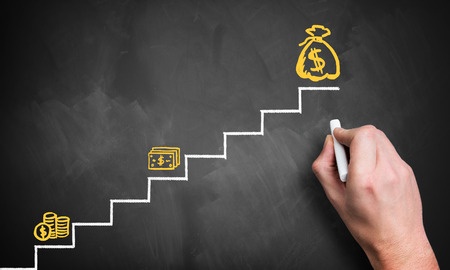Overview
 Price gouging is a form of anti-competitive conduct and a current antitrust concern as a result of the COVID-19 outbreak. Due to COVID-19’s impact on various supply and demand factors, the hoarding and price gouging of medical supplies and other essential products has become a major concern for state and federal authorities. The practice of hoarding and price gouging keeps critical supplies away from people and professionals that desperately need them. Currently, there is significant demand for – and a shortage of – various items including hand sanitizer, ventilators, and personal protective equipment (PPE) such as face masks, gloves, and other medical supplies. Front-line health care professionals need these supplies to fight the virus while protecting themselves. Many health care professionals are getting sick due to lack of PPE and other critical medical supplies. In New York alone, 2 nurses and a world-renowned pediatric neurosurgeon have died as a result of COVID-19.
Price gouging is a form of anti-competitive conduct and a current antitrust concern as a result of the COVID-19 outbreak. Due to COVID-19’s impact on various supply and demand factors, the hoarding and price gouging of medical supplies and other essential products has become a major concern for state and federal authorities. The practice of hoarding and price gouging keeps critical supplies away from people and professionals that desperately need them. Currently, there is significant demand for – and a shortage of – various items including hand sanitizer, ventilators, and personal protective equipment (PPE) such as face masks, gloves, and other medical supplies. Front-line health care professionals need these supplies to fight the virus while protecting themselves. Many health care professionals are getting sick due to lack of PPE and other critical medical supplies. In New York alone, 2 nurses and a world-renowned pediatric neurosurgeon have died as a result of COVID-19.
On April 1, 2020, the federal government confirmed it had nearly depleted its supply of PPE. As a result, federal and state authorities have turned to anti-price gouging laws to protect their supply of critical materials. President Trump signed an executive order on March 23, 2020, providing the U.S. Department of Justice (DOJ) with enforcement authority to address the hoarding and price gouging of necessary health and medical resources. This action is authorized under the Defense Production Act. The president’s Executive Order, in conjunction with the Defense Production Act, prohibits:
Any person from accumulating designated materials (1) in excess of the reasonable demands of business, personal, or home consumption, or (2) for the purpose of resale at prices in excess of prevailing market prices.
Protected products under the president’s executive order – and other similar laws across the country – include:
- N-95 face masks
- Portable ventilators
- Disinfecting devices
- Medical gowns
- Medical gloves
- Surgical face masks
- Sterilizers
- Drug product with active ingredient chloroquine phosphate or hydroxychloroquine HCl
Price gouging laws prohibit the charging of exorbitant prices for essential products in times of high demand (often during crises). Currently, 34 states have price gouging laws. These laws are often triggered by emergency declarations, and 48 states have declared a “state of emergency” in response to the COVID-19 outbreak. Generally, these laws prohibit an increase in price above a certain threshold or “cap,” usually a maximum percentage increase from the price immediately preceding the state of emergency. Price gouging laws typically extend for a period of time after a declared state of emergency (usually 30 days unless extended).
For example, prior to the COVID-19 outbreak, Illinois’ law only applied to fuel and petroleum products. On March 16, 2020, Illinois Governor JB Pritzker issued an executive order prohibiting price gouging and providing the Illinois Attorney General with enforcement authority. Governor Pritzker’s executive order focuses on medical supplies. The Illinois Attorney General is already investigating numerous reported cases of price gouging.
So what separates price gouging from ordinary market-driven price increases? In the normal course of business, supply and demand variables can dictate price increases which are perfectly acceptable and legal. For example, the price of eggs recently increased due to heightened demand. Such an increase does not constitute price gouging if it:
- Is not a protected product during a price gouging prohibition (as defined by applicable law); or
- Remains below the specified percentage or price increase “cap” as mandated by applicable law.
To protect the marketplace and health care professionals fighting COVID-19, individuals and businesses are encouraged to report suspected hoarding or price-gouging incidents to the U.S. Department of Justice, National Center for Disaster Fraud: (866) 720-5721, or your respective state attorney general’s office.
Going forward, companies can mitigate antitrust risk by taking the following protective measures:
- Implement (or update) robust antitrust compliance programs aimed at preventing and detecting anti-competitive conduct.
- Ensure that high-risk employees, such as those with sales and pricing responsibilities, receive proper antitrust training.
- Establish certain standards for pricing and/or sales approvals which must be obtained in conjunction with upper management.
- If a price must be adjusted, ensure that there is a good-faith basis and a valid business reason for increasing the price.
- Stay up-to-date on protected products under applicable state and federal price gouging laws and adhere to the pricing guidelines set by those laws.
- Understand that prices increased during times of short supply and high demand, especially during a crisis, will be highly scrutinized by state and federal authorities.
- Do not coordinate with competitors on prices or require customers to re-sell at or above minimum re-sale prices.
- If needed, consult with legal counsel to evaluate antitrust risk and assist in developing suitable compliance programs.